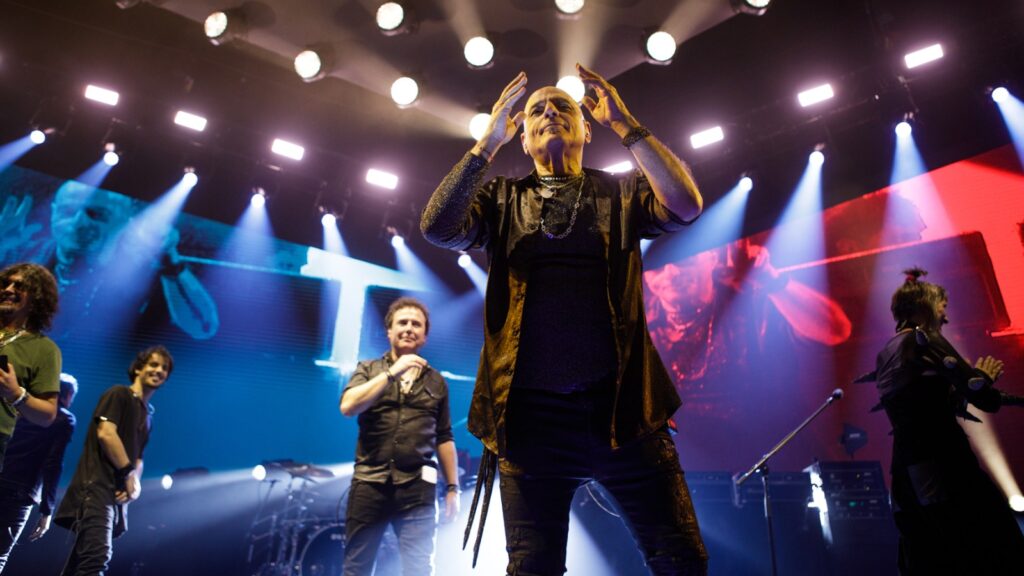Soda Stereo’s Path to the Rock and Roll Hall of Fame: A Fan’s Mission
Dedicated fans often go above and beyond to support their favorite music artists, and for Miguel Garvez, a former journalist living in Southern California, this devotion is expressed through a specific goal: securing a place for the legendary Argentine band, Soda Stereo, in the Rock and Roll Hall of Fame.
A Personal Connection to Music
Garvez, who is 56, reflects on his deep connection to the band, stating, “I associate Soda Stereo with great times in my life.” His appreciation began in Mexicali during his college years, where their music was a staple at gatherings and concerts. He credits them with continually reinventing their sound and visuals, remaining ahead of their time.
Latin American Rock’s Evolving Place in History
Soda Stereo’s contributions are recognized throughout Latin America, establishing a legacy that stands alongside global rock icons like Depeche Mode and The Police. However, it wasn’t until the 1990s that Latin American rock began to achieve recognition comparable to mainstream artists such as Radiohead and U2. Despite recent inclusions like the Mexican band Mana—who were notably the first Spanish-speaking group nominated—it appears that the Hall of Fame still overlooks many prominent Latin artists.
Mana’s Nomination and Its Implications
While Mana made history with their nomination, they ultimately did not secure enough votes to be inducted. Critics pointed out that their success often aligns with corporate rock sensibilities, raising concerns about the recognition of genuine Latin rock innovation. In this context, Garvez’s push for Soda Stereo gains traction as their artistic influence merits serious consideration.
Soda Stereo’s Impact on Latin Music
The story of Soda Stereo is one of artistic innovation and cultural significance. Formed in the mid-1980s in Buenos Aires, the band, led by singer-songwriter Gustavo Cerati, combined British new wave influences with poetic Spanish lyrics. The lineup, including bassist Zeta Bosio and drummer Charlie Alberti, crafted a sound that resonated across Latin America, proving that rock music in Spanish could achieve commercial success and widespread appeal.
Legacy and Recognition
Soda Stereo disbanded in 1997 but left behind a powerful legacy that continues to inspire new generations of Latin rock musicians. Their highest achievements include albums like the 1992 release, which showcased their innovative sound.
As producer Tweety González puts it, “They definitely belong in the Hall of Fame… Soda was a band that was crucial to the Rock En Español genre.” Similarly, Kalos Alomar, who produced their notable Doble Vida album, emphasizes their rightful place in music history.
A Dedicated Campaign for Change
The idea for Garvez’s campaign originated in 2011 when he saw a performance featuring U2. It crystallized during the pandemic in 2020, when he sought to bring some positivity through advocacy for Soda Stereo. He launched a website and gathered over 38,000 signatures for a petition calling for their induction into the Hall of Fame. The campaign has garnered support from influential Latin artists and reached Hall of Fame executives, establishing itself as a significant movement within the industry.
What Success Would Mean
When asked about the potential for success, Garvez expresses profound hope: “I’d feel immeasurable satisfaction because I’ve always known that it could happen.” His journey, albeit challenging, is fueled by his love for the music and the impact Soda Stereo has had on cultures across the globe.
Conclusion
The ongoing campaign for Soda Stereo’s recognition at the Rock and Roll Hall of Fame is a testament to the band’s enduring influence and the passionate dedication of their fans. As Garvez continues to advocate for their legacy, it becomes increasingly clear that their contribution to rock music deserves wider acknowledgment.


